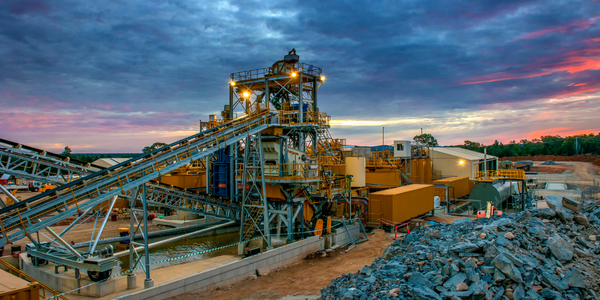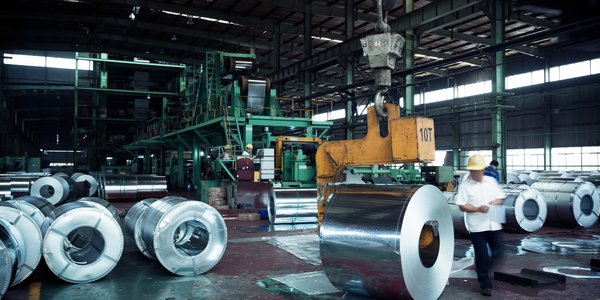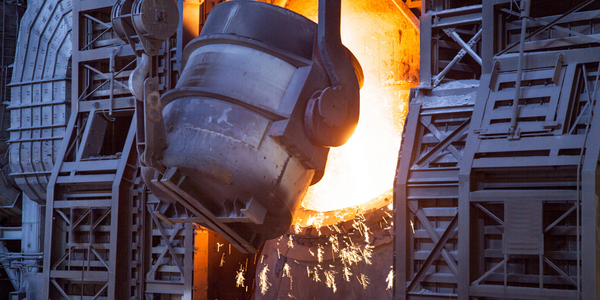Applicable Industries
- Metals
Use Cases
- Inventory Management
- Onsite Human Safety Management
About The Customer
U.S. Pipe, originally incorporated in 1899 as United States Cast Iron Pipe and Foundry Company, has grown through acquisitions and expansions to become the largest domestic producer of Ductile Iron pipe. The company prides itself on its principles of Innovation, Service, and Quality, and offers a range of products to serve the water and wastewater industry. U.S. Pipe has been providing dependable and economical solutions for their customers for over a century. The company operates in multiple locations across the country, presenting unique challenges in managing its operations.
The Challenge
U.S. Pipe, the largest domestic producer of Ductile Iron pipe, was facing challenges in managing its operations due to its manual capital expenditure requisition process. The process was cumbersome and slow, making it difficult for the company to efficiently manage its resources and operations. Additionally, the company was struggling with safety incident reporting in its plants. The existing system was not efficient and did not allow for quick and easy reporting of incidents. Furthermore, the company had to manage disparate locations around the country, which presented unique challenges in maintaining consistency and scalability of standardized processes.
The Solution
U.S. Pipe decided to implement Integrify, a workflow management solution, in July 2013. The solution was chosen for its ability to be deployed and managed with internal resources. The first step was to automate the capital expenditure requisition process. Once this was successfully implemented, the use of Integrify began to expand into other departments and functions including IT, HR, Supply Chain, and Safety. To improve safety incident reporting, a system was developed that allowed any supervisor to report an incident via the internal intranet site by completing a short form. Based on workflow rules, these incidents were logged and emailed to relevant managers throughout the company. Integrify was also used to standardize and automate processes across all of U.S. Pipe’s locations, ensuring consistency and scalability.
Operational Impact

Case Study missing?
Start adding your own!
Register with your work email and create a new case study profile for your business.
Related Case Studies.

Case Study
Goldcorp: Internet of Things Enables the Mine of the Future
Goldcorp is committed to responsible mining practices and maintaining maximum safety for its workers. At the same time, the firm is constantly exploring ways to improve the efficiency of its operations, extend the life of its assets, and control costs. Goldcorp needed technology that can maximize production efficiency by tracking all mining operations, keep employees safe with remote operations and monitoring of hazardous work areas and control production costs through better asset and site management.

Case Study
KSP Steel Decentralized Control Room
While on-site in Pavlodar, Kazakhstan, the DAQRI team of Business Development and Solutions Architecture personnel worked closely with KSP Steel’s production leadership to understand the steel production process, operational challenges, and worker pain points.

Case Study
Bluescope Steel on Path to Digitally Transform Operations and IT
Increasing competition and fluctuations in the construction market prompted BlueScope Steel to look toward digital transformation of its four businesses, including modern core applications and IT infrastructure. BlueScope needed to modernize its infrastructure and adopt new technologies to improve operations and supply chain efficiency while maintaining and updating an aging application portfolio.

Case Study
RobotStudio Case Study: Benteler Automobiltechnik
Benteler has a small pipe business area for which they produce fuel lines and coolant lines made of aluminum for Porsche and other car manufacturers. One of the problems in production was that when Benteler added new products, production had too much downtime.

Case Study
Continuous Casting Machines in a Steel Factory
With a very broad range of applications, steel is an important material and has been developed into the most extensive alloy in the engineering world. Since delivering high quality is absolutely crucial for steel plants, ensuring maximum productivity and the best quality production are the keys to competitiveness in the steel industry. Additionally, working conditions in steel factories are not suitable for workers to stay in for long periods of time, so manufactures usually adopt various machines to complete the steel production processes. However, the precision of these machines is often overestimated and the lack of flexibility also makes supervisors unable to adjust operating procedures. A renowned steel factory in Asia planned to improve its Distributed Control System (DCS) of furnaces as well as addressing the problem of insufficient accuracy. However, most well-known international equipment suppliers can not provide a satisfactory solution and local maintenance because the project needed new technologies to more accurately control equipment operations. By implementing Advantech’s automated monitoring and control solution, steel factories can not only improve the manufacturing processes but can also allow users to add additional functions to the existing system so as to make sure the operation runs at high efficiency.

Case Study
Automated Predicitive Analytics For Steel/Metals Industry
Asset to be monitored: Wire Compactor that produces Steel RebarCustomer Faced The Following Challenges:Dependent upon machine uptime.Pressure cylinders within the compactor fail to control compression and speed causing problems in binding the coil.Equipment failure occurs in the final stage of production causing the entire line to stop, can you say bottleneck?Critical asset unequipped with sensors to produce data.







